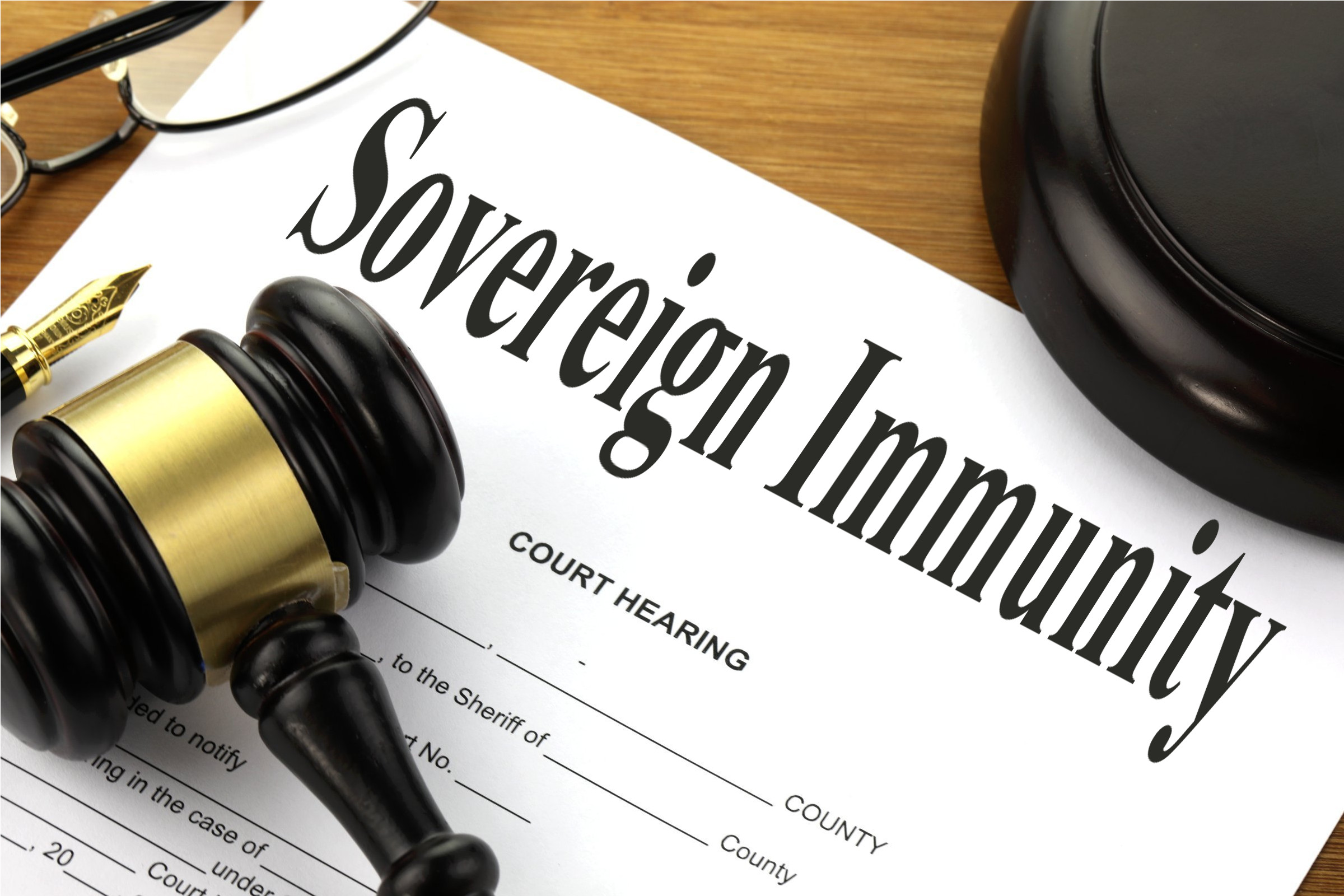“By creating a robust record of infringement that establishes an unconstitutional deprivation of property, ‘the Copyright Office can recommend, and Congress has the power to abrogate state sovereign immunity.’”
 Last week, the Regulatory Transparency Project of the Federalist Society released a white paper titled “Holding States Accountable for Copyright Piracy.” The paper was authored by Alden Abbott, Kevin Madigan, Adam Mossoff, Kristen Osenga, and Zvi Rosen and noted that the U.S. Supreme Court has recognized that “copyright is the engine of free expression that supplies the economic incentive to create and disseminate ideas.” However, citing Allen v. Cooper, the paper explained that a recent Supreme Court decision has jeopardized the U.S. copyright system by “severely limiting” the ability of creators and copyright owners to hold states accountable for infringement by holding that states can escape accountability for intentional acts of infringement by invoking the doctrine of sovereign immunity. The paper further emphasized the injustice that Allen has brought forth, since current law allows states to claim the benefits of copyright protection for their own works and works transferred to them, while escaping liability when they infringe the copyrights of others. Solutions were proposed to level the playing field, including Congress enacting a law validly abrogating state sovereign immunity and waiving sovereign immunity for states acting as market participants.
Last week, the Regulatory Transparency Project of the Federalist Society released a white paper titled “Holding States Accountable for Copyright Piracy.” The paper was authored by Alden Abbott, Kevin Madigan, Adam Mossoff, Kristen Osenga, and Zvi Rosen and noted that the U.S. Supreme Court has recognized that “copyright is the engine of free expression that supplies the economic incentive to create and disseminate ideas.” However, citing Allen v. Cooper, the paper explained that a recent Supreme Court decision has jeopardized the U.S. copyright system by “severely limiting” the ability of creators and copyright owners to hold states accountable for infringement by holding that states can escape accountability for intentional acts of infringement by invoking the doctrine of sovereign immunity. The paper further emphasized the injustice that Allen has brought forth, since current law allows states to claim the benefits of copyright protection for their own works and works transferred to them, while escaping liability when they infringe the copyrights of others. Solutions were proposed to level the playing field, including Congress enacting a law validly abrogating state sovereign immunity and waiving sovereign immunity for states acting as market participants.
Sovereign Immunity and Copyright Law
The paper noted that it was not the intention of the Founders nor Congress that state actors be allowed to infringe the copyrights of individuals without consequences. It explained that for much of the 20th century there was no question that copyright owners could seek restitution from states for copyright infringement. Quoting the Former Register of Copyrights, Marybeth Peters, in 2000, the paper stated that “[f]or most of our history, it has been assumed that the States enjoyed no special immunity from suits for infringement of intellectual property rights.” However, the paper explained that the Supreme Court’s decision in the 1985 case Atascadero State Hospital v. Scanlon changed the landscape by holding that “any legislative waiver or abrogation of a state’s sovereign immunity under the 11th Amendment must be ‘unequivocal.’” Following Atascadero, federal courts began to apply this rule to hold that the Copyright Act did not unequivocally abrogate state sovereign immunity. Thus, copyright owners were unable to seek monetary remedies for copyright infringement by the states. In response to concerns over the problem created by the Atascadero decision, the Copyright Remedy Clarification Act (CRCA) was enacted in 1990. The CRCA “explicitly abrogated the sovereign immunity of states under Eleventh Amendment in copyright infringement suits.” It has been an ongoing debate for many years whether the CRCA properly abrogated state sovereign immunity for copyright infringement.
Allen v. Cooper
In 2015, Frederick Allen began litigation against the state of North Carolina that eventually led to the Supreme Court finding that the CRCA was unconstitutional and, therefore, North Carolina was shielded from Allen’s claims. Allen’s Nautilus Productions company was hired by UNC-TV in 1998 to capture underwater video footage of an early 18th century shipwreck discovered off the coast of North Carolina, i.e., Blackbeard’s Queen Anne’s Revenge. An agreement was in place to ensure that Allen retained copyright in the video footage. In 2013, Allen learned that his underwater video footage had been made available on North Carolina’s Department of Natural and Cultural Resources website without Allen’s consent. Initially, North Carolina compensated Allen for use of the video footage. However, a couple of years later, North Carolina passed “Blackbeard’s Law”, which “immunized it from being sued for copyright infringement by officially converting copyrighted works like Allen’s video footage into a public record.”
Allen filed suit against North Carolina in federal court for copyright infringement and won in the trial court. Later, a federal appeals court reversed the trial court’s decision and found that the CRCA was unconstitutional. In a 2020 decision, the Supreme Court affirmed. Thus, North Carolina was found to be “immune from Allen’s undisputed legal claim for relief given the unauthorized use of his work by a North Carolina state agency.” Allen commented that “because of current law and Supreme Court precedent, I am powerless to enforce my constitutionally granted intellectual property rights against infringement by States.”
The Problem Explained
The paper emphasized the problems created by the lack of a meaningful remedy against state infringers, including increased instances of infringement by states. Noting that the instances of state piracy of copyrights are vast and arise from many different creative endeavors, the paper pointed to specific examples, including a state refusing to pay a photographer for continued use of his photographs and a California state agency’s wholesale copying of thousands of articles from a newspaper publisher. Increased instances of copyright infringement by state universities have been reported by professional organizations representing copyright owners in musical works. Further, the software industry has reported 77 recent instances of “obvious and flagrant … piracy” by states. Many other lawsuits have been documented by government agencies and, undoubtedly, many more go undercounted or unreported. The authors noted that “[l]ike the iceberg underneath the water, the amount of state infringement that goes undetected is likely much more substantial. Many copyright owners simply do not have the time or resources to constantly monitor for infringement, and they are even less likely to pursue copyright infringement lawsuits against states when they know meaningful remedies will be blocked by sovereign immunity.”
The paper added that injunctive relief is not a sufficient remedy for copyright owners and creators who have had their copyrights infringed by a state agency. Although an injunction stops future instances of copyright infringement, the authors explained that injunctions are largely inadequate due to the “high cost, stress, and time associated with bringing a suit that would ultimately provide no redress for past harms.” The paper noted that when states only face the possibility of an injunction and nothing more, the creative industries are harmed by destroying markets for existing works and denying authors and artists the fair and just compensation. Further, there is harm to the incentive to create for works “consumed heavily by states and state agencies, such as computer software, educational materials, books, music, photographs, movies, and more.”
Proposed Solutions
The Supreme Court’s March 23, 2020 decision in Allen found the CRCA to be unconstitutional in falling short of its requirements for abrogating state sovereign immunity, but outlined a path for legislative reform by suggesting “that if Congress develop a legislative record that demonstrates evidence of copyright piracy by state officials and agencies and link the scope of the abrogation of sovereign immunity to the redress or prevention of these demonstrated harms to creators, then abrogation of state sovereign immunity would be appropriate pursuant to Section 5 of the Fourteenth Amendment.” The paper noted that there are several ways to correct the current problem, including Congress enacting a law validly abrogating state sovereign immunity. In particular, by creating a robust record of infringement that establishes an unconstitutional deprivation of property, “the Copyright Office can recommend, and Congress has the power to abrogate state sovereign immunity.” In order to assist in creating a robust record, the U.S. Copyright Office published a Federal Register notice regarding a study it initiated to “evaluate the degree to which copyright owners are experiencing infringement by state entities without adequate remedies under state law, as well as the extent to which such infringements appear to be based on intentional or reckless conduct.”
The paper also outlined an alternative approach wherein “states that are acting as market participants, not as sovereigns, would be subject to lawsuits for copyright infringement.” For example, when states are providing education through universities, providing tourism services, or healthcare services at hospitals, they are acting in commercial market capacities and they benefit from enforcing their copyrights in courts. Thus, the state’s actions as a “market participant” may be “deemed to be an admission that they are also subject to lawsuits in court as defendants for copyright infringement.” The paper noted that a potential solution could be for Congress to “amend Section 105 of the Copyright Act either to bar states from owning copyrights or to require that a state who wishes to take advantage of the benefits of copyright ownership, including availing itself of money damages, waive its sovereign immunity from lawsuit for its infringement of the copyrights of others.”
In summary, the paper emphasized that something needs to be done to level the playing field with respect to copyright ownership and duties between state officials and private citizens. As it stands, states are permitted to benefit from copyright ownership, “especially when state officials and agencies act in ways that directly compete with other private companies or entities in the marketplace,” but they are not held accountable for infringing the copyrights of others.
Image rights: Sovereign immunity by Nick Youngson CC BY-SA 3.0 Pix4free

![[IPWatchdog Logo]](https://ipwatchdog.com/wp-content/themes/IPWatchdog%20-%202023/assets/images/temp/logo-small@2x.png)

![[Advertisement]](https://ipwatchdog.com/wp-content/uploads/2024/04/Artificial-Intelligence-2024-REPLAY-sidebar-700x500-corrected.jpg)
![[Advertisement]](https://ipwatchdog.com/wp-content/uploads/2024/04/Patent-Litigation-Masters-2024-sidebar-700x500-1.jpg)

![[Advertisement]](https://ipwatchdog.com/wp-content/uploads/2021/12/WEBINAR-336-x-280-px.png)
![[Advertisement]](https://ipwatchdog.com/wp-content/uploads/2021/12/2021-Patent-Practice-on-Demand-recorded-Feb-2021-336-x-280.jpg)
![[Advertisement]](https://ipwatchdog.com/wp-content/uploads/2021/12/Ad-4-The-Invent-Patent-System™.png)






Join the Discussion
One comment so far.
Anon
May 19, 2021 09:39 amAn interesting topic (with Mossof and Osenga lending name impact).